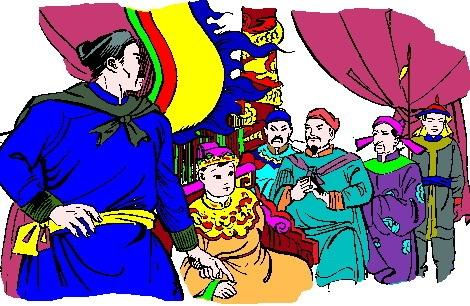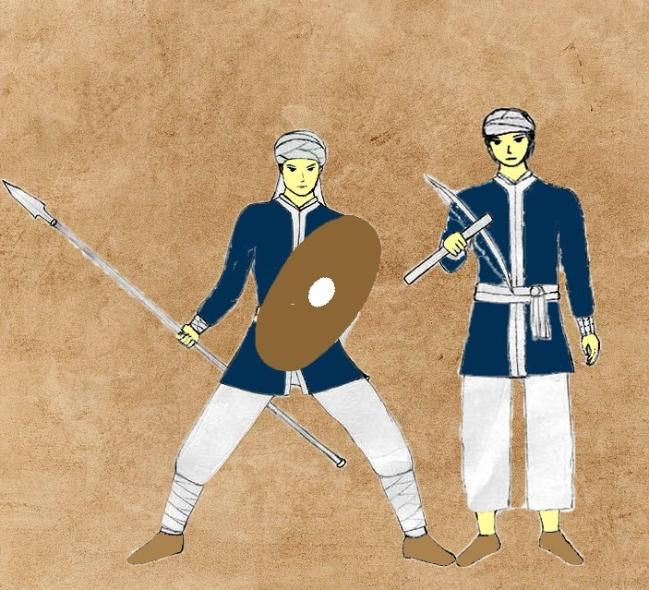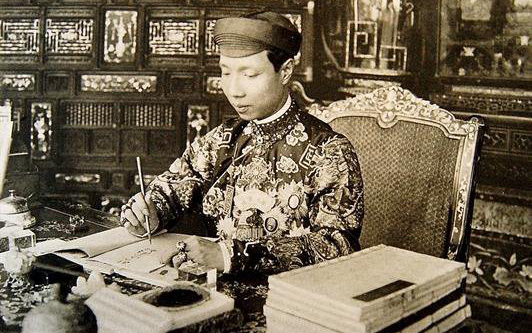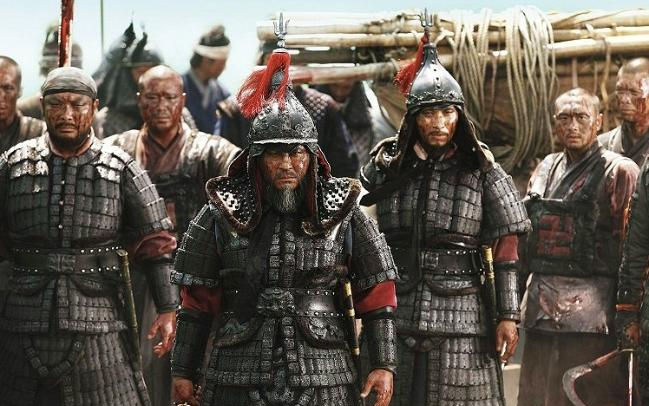How did the Song History record that the Song army was “killed” when invading Dai Viet?
Pho Ma Than Canh Phuc, nicknamed Pho Ma Ao indigo, is the chief of Giap cave. The Than family lineage for many generations enjoyed the privileges of the Ly court and was given the title of Tri Chau Quang Lang. Three generations of the Than family were all consorts of the Ly dynasty. Chief Than Thua Quy married the daughter of King Ly Thai To’s daughter. Chief Than Thieu Thai son of Than Thua Quy married Princess Binh Duong of King Ly Thai Tong in 1029. Chief Than Canh Phuc, son of Than Thieu Thai married Princess Thien Thanh of King Ly Thanh Tong in 1066. Thanks to a relationship. With such close family and kinship relations, his consort Than Canh Phuc remained loyal to the Dai Viet court. When the Song army invaded the border area, most of the chiefs of the northern region of Dai Viet had to surrender to the military power and seduction of the Song.

Than Canh Phuc was the few remaining people who persisted in fighting. Than Canh Phuc has more than 5,000 military units, and the estimates of the Song state all rank Than Canh Phuc, Luu Ky, and Tong Dan as the three most formidable figures among the Dai Viet chiefs. Than Canh Phuc’s troops were mostly spearmen in the highlands, good at fighting in the mountains, good at ambushes, setting traps and fighting on narrow roads. These warriors were not inferior to those of the Ly court as well as the chimpanzees of the Song state in terms of quality. They are really good at fighting, especially when fighting on familiar battlefields. Than Canh Phuc was also supported by the imperial army and the statue army in the battle to keep the gates.
At the beginning of 1077, when Than Canh Phuc set up an ambush at Giap Khau pass, he was forced to retreat by Quach Quy who took a detour to attack the rear. Quach Quy planned to try to fight quickly and win quickly, capture the capital Thang Long and destroy the imperial army soon, then all other armies of Dai Viet would have to surrender or be easily annihilated. But in reality, the Nhu Nguyet line was too powerful. The Song army was stuck in one place for months, supplies gradually fell short, and the soldiers gradually weakened due to incompatibility with water and soil. When Than Canh Phuc’s army arrived at Giap cave, a part of the imperial regular army had to withdraw to the south to join forces to defend the Nhu Nguyet front line. Than Canh Phuc organized the evacuation of forces into the mountains and forests, leaving only the elderly and weak in the villages. With his own army, Than Canh Phuc divided into small groups, lurking along the supply route of the Song army and waiting for the right opportunity. When there was a Song army or a private man, he was immediately captured and killed by Than Canh Phuc’s ambush.
This way of fighting, today we are used to calling it guerrilla war, that is, a type of war based on hiding and ambushing with small forces, without a clear front line. However, to be precise, Than Canh Phuc’s army used to be called a warrior. In terms of fighting, the soldiers, like the guerrillas of modern times, are based on ambush and hiding tactics. Soldiers also use small forces, attack quickly and shorten. The basic difference between the two types that makes us distinguish is that the army soldiers, although divided into small numbers, still have a team and organization in the style of a regular army. Guerrillas can be mixed in with the people of the occupied area, can fight individually and when necessary, gather in groups. Than Canh Phuc’s soldiers used the mountains and forests of Giap as a base, active throughout the Lang Chau region. This area is located on the Thien Ly route connecting the territory of the Song country directly to Thang Long.

Military uniform of Than Canh Phuc.
In order to transport food, medicine, and weapons, Song’s people must pass through. The prolonged war and the harassment of Than Canh Phuc’s army made the Song army extremely miserable. History of Song describes Than Canh Phuc: “The Song army won to capture Quang Lang (Lang Chau), the Tri Chau was the king’s son-in-law, so he hid in the grass. When he saw the Song army, he killed or caught him to cut meat to eat. It was said to be a God. God”. The Song army had to cut soldiers from the northern Nhu Nguyet front line back to Lang Chau to deal with Than Canh Phuc and protect the logistics line. The people who were in charge of the transport also had to stretch themselves to fight with the Song soldiers.
Than Canh Phuc inherited the inheritance, the more he deployed his army to operate throughout the entire Bac Giang region, threatening the back of the large army of Quach Quy. Here in Bac Giang, he encountered large forces of the Song army, leading to fierce fighting. In a battle at Luc Ngan (Bac Giang), Than Canh Phuc unfortunately died in battle.
The indigo-robed concubine Than Canh Phuc fell, but his fight was continued by the forces of the ethnic minority people of the continent. The results of the war of attrition that Than Canh Phuc was the initiator and leader were great. The 200,000 people of the Song family couldn’t bear the hardship, and were killed regularly after nearly two months, and died more than half of it. The rest of the villagers pretended to be overworked, and most of them were also sick and ailing. As a result, Quach Quy’s army stationed on the north bank of Nhu Nguyet wharf ran out of food. Each meal of the Song army was severely cut, and medicine was lacking, leading to a sharp decline in combat strength. When the Song army pulled over, there were 10 thousand, when the army gathered at Nhu Nguyet wharf, there were more than 9,000. After fighting with the defenders, the Song army lost more than 80,000. Although the army was still so large, the number of healthy troops was only more than half. The remaining Song troops were sick or debilitated, and their combat effectiveness was much worse. There were even Song soldiers who died of starvation and disease. History books of the Song state, as well as the reports of Song generals returning to the country, must also acknowledge the tragic situation that the Song army had to endure. But they do not dare to say the reason directly, but avoid it, blaming it on “hot, blue obstacles”.
That is how the history books of the Chinese dynasties still use to explain military failures abroad. In fact, the Song army was in dire straits because of the lack of food and medicine, and the lack of food and medicine because the people died. The Song people are the people in the south of the Song country, more familiar with the water than the soldiers, but they die a lot due to hard work, but mostly because they were beaten and killed by Than Canh Phuc and the soldiers. This feat of Than Canh Phuc and the army and people on the northern border made an important contribution to the war. Thanks to that, Thai lieutenant Ly Thuong Kiet had enough conditions to soon launch the finishing blows to the Song army, before the allied forces of Champa and the Khmer army could attack from the south.
at Blogtuan.info – Source: danviet.vn – Read the original article here


